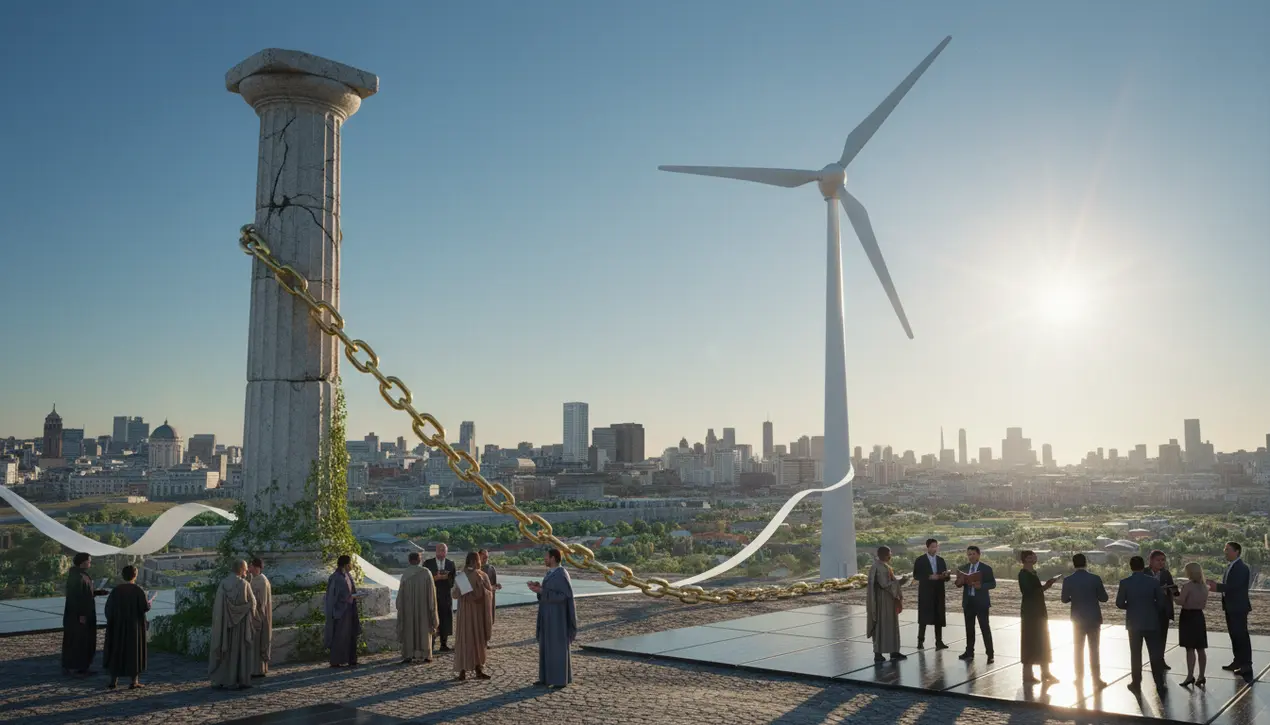
Politicsgovernments & cabinetsPolicy Agendas
The Link Between Democracy and Sustainable Economic Growth.
RO
Robert Hayes
3 hours ago7 min read1 comments
The intricate symbiosis between democratic governance and sustainable economic advancement represents one of the most consequential political dynamics of the modern era, a relationship whose historical precedents and contemporary implications demand rigorous analysis. Drawing from the grand tapestry of political history, from the Athenian agora to the constitutional republics of the Enlightenment, we observe a consistent pattern: nations that institutionalize political freedoms, competitive elections, and civic accountability invariably create the fertile ground upon which inclusive, resilient economies can flourish.This is not merely correlation but causation; when citizens possess the fundamental right to choose their leaders and hold them accountable through transparent mechanisms, governments are incentivized to pursue policies that foster long-term stability, equitable resource distribution, and human capital development rather than short-term extraction for the benefit of a narrow elite. Consider the post-war reconstruction of Western Europe, where the Marshall Plan's economic infusion was deliberately coupled with the establishment of democratic institutions, creating a virtuous cycle that propelled decades of unprecedented prosperity and social cohesion.Conversely, authoritarian regimes, while occasionally capable of delivering rapid growth through centralized command—as seen in certain East Asian developmental states—often build economies on fragile foundations, susceptible to corruption, misallocation of capital, and social unrest when the populace's aspirations for political participation are systematically suppressed. The accountability mechanism inherent in democratic systems acts as a crucial check against the predatory tendencies that can undermine economic potential, forcing leaders to answer for inflationary crises, unemployment, and infrastructural decay rather than obscuring failure through propaganda or coercion.Furthermore, democratic societies typically guarantee property rights, enforce rule of law, and protect civil liberties—the essential institutional bedrock that encourages domestic entrepreneurship, attracts foreign direct investment, and fosters the innovation ecosystems that drive sustainable advancement. The great political philosopher Winston Churchill, in his monumental history of the English-speaking peoples, implicitly chronicled this very connection, illustrating how the gradual expansion of parliamentary sovereignty and individual rights in Britain paralleled its economic ascent to global preeminence.In our current geopolitical landscape, this dynamic continues to play out with stark clarity. Nations undergoing democratic backsliding, such as Hungary and Turkey, have witnessed a corresponding erosion in economic resilience and investor confidence, while countries consolidating their democratic transitions, like Ghana and Uruguay, demonstrate how political pluralism can catalyze broad-based development.The challenge for the 21st century, however, lies in adapting this timeless principle to new threats: digital authoritarianism, disinformation campaigns, and the corrosive influence of concentrated wealth on political processes all represent modern vulnerabilities that could decouple democracy from its economic benefits if left unaddressed. Ultimately, the pursuit of democratic norms and sustainable growth is not a sequential process but a mutually reinforcing endeavor—a lesson that policymakers from emerging economies to established powers would be wise to heed, for the fate of our global economic order depends upon the vitality of its political foundations.
#democracy
#sustainable development
#inclusive growth
#government accountability
#elections
#political systems
#featured
Stay Informed. Act Smarter.
Get weekly highlights, major headlines, and expert insights — then put your knowledge to work in our live prediction markets.
Comments
Loading comments...
© 2025 Outpoll Service LTD. All rights reserved.